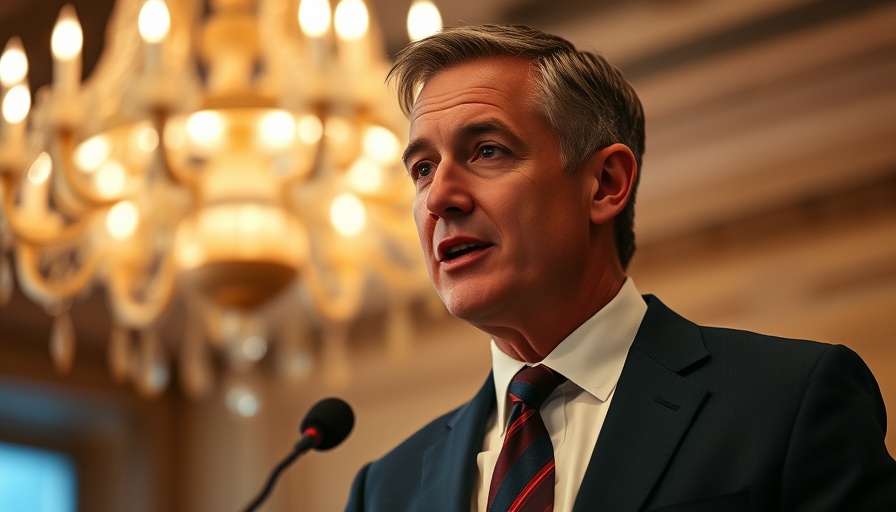
Why Marco Rubio's African Tour Cancellation Matters
The recent news of U.S. Secretary of State Marco Rubio canceling his first planned tour of Africa has sparked considerable intrigue and concern among professionals engaged in diplomacy, trade, and economic development. Originally slated to encompass key visits in Nairobi and Addis Ababa, the tour's cancellation represents more than a missed opportunity for dialogue between the U.S. and Africa. It raises important considerations about the evolving dynamics of U.S.-Africa relations and the implications for trade, security, and governance on the continent.
The Importance of U.S.-Africa Relations
With Africa being rich in resources and potential markets, engagement from major powers like the United States is crucial for its sustainability and growth. Organizations such as the African Union (AU) are continuously pushing for enhanced partnerships that align with the continent's aspirations for economic growth, trade opportunities, and development. Rubio's absence from the continent during this important moment could signify a shift in the U.S.'s approach to international diplomacy in a region that desperately needs support amid challenges such as poverty, corruption, and terrorism.
Potential Impact on Security and Trade
The cancellation comes during a turbulent time for East Africa, where security issues and economic development are intertwined. The Kenyan government has been proactive in addressing terrorism threats, with U.S. support being a key pillar of its strategy. Furthermore, the establishment of the African Continental Free Trade Area (AfCFTA) is positioned to unleash unprecedented economic collaboration. For stakeholders in the trade and governance sectors, the implications of Rubio's cancellation warrant closer scrutiny, as they may lead to shifts in policy discussions on critical areas like infrastructure development and human rights.
Future Predictions and Opportunities
While the cancellation of Rubio's tour is indeed concerning, it may present opportunities for African leaders and civil society to advocate for their priorities directly. This situation might encourage continental conversations about governance, democracy, and investment, allowing African voices to take more space in dialogues that directly affect their futures. Furthermore, it underscores the necessity for consistent engagement from global powers to address challenges such as climate change, youth unemployment, and the increasing urbanization of cities across Africa.
Local Perspectives on the Cancellation
Locally, reactions to the news have varied. Some view it as a tactical retreat by the U.S. amid broader geopolitical shifts, especially with the rising influence of China and Russia in African affairs. Others worry about how such cancellations can affect the sentiments of people within the African diaspora and those engaged in social movements advocating for jusice, equity, and transparency. These perspectives are crucial, as they contribute to the comprehensive understanding of Africa's place in the global arena.
The Role of the Diaspora
Moreover, the African diaspora plays a monumental role in fostering connections and enhancing mutual understanding between Africa and the global community. As U.S. foreign policy narratives change, engaging with diaspora communities to foster discussions around economic development and cultural exchanges can create pathways for meaningful interaction. This adds a layer of importance to the conversation around why high-level diplomatic visits are needed and what the ramifications are when they fall through.
Conclusion and Call to Action
As professionals engaged in governance, diplomacy, and economic development, it is crucial to keep an eye on the evolving landscape of U.S.-Africa relations. Understanding the implications of cancellations like Rubio's is essential for shaping future advocacy efforts. Stakeholders should take this moment to rally around the importance of continuous dialogue and support for African nations in their quests for economic growth, peace, and effective governance. Furthermore, consider how you can contribute to these conversations within your network and advocate for stronger partnerships between local initiatives and global movements.
 Add Row
Add Row  Add
Add 




Write A Comment